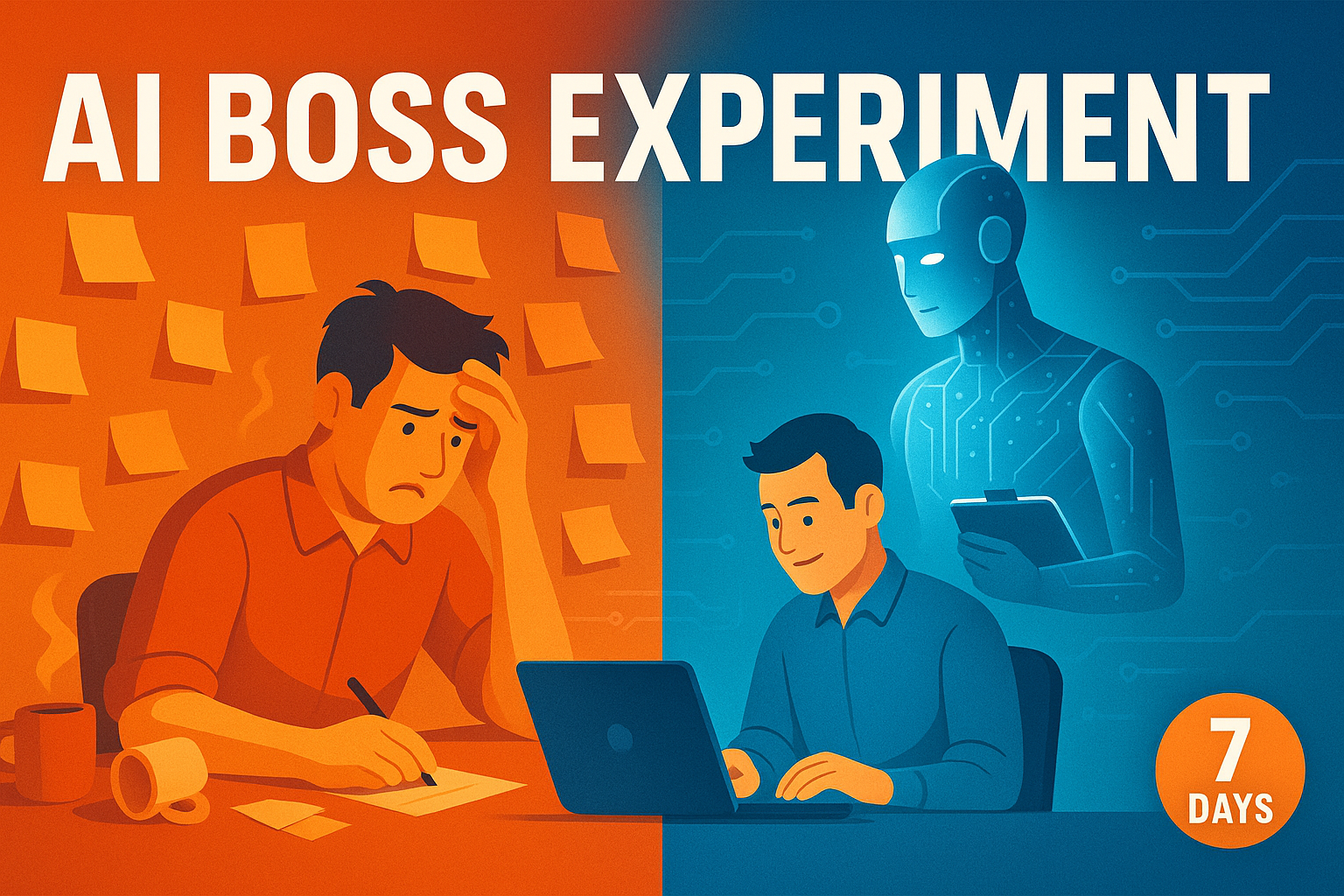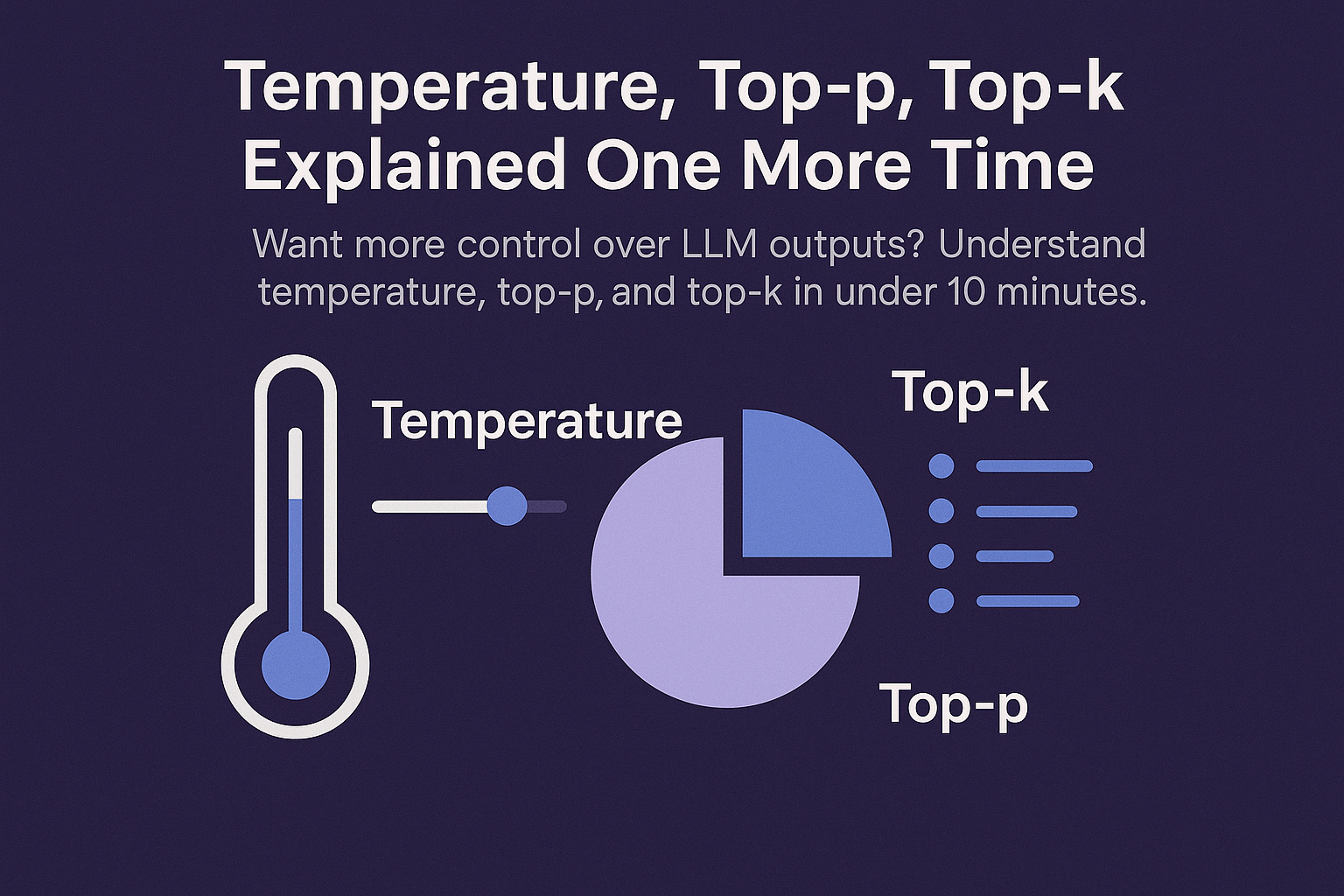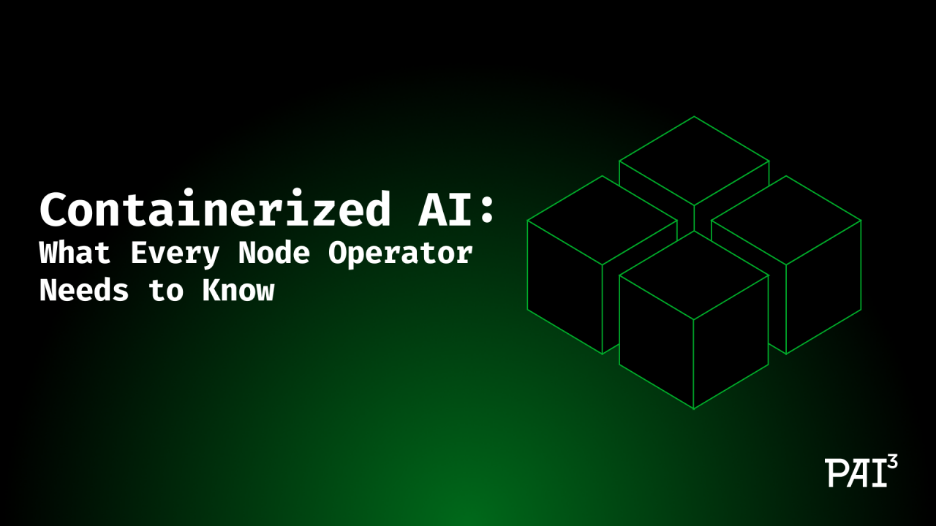
AI: A Double-Edged Sword for HumanityAI: A Double-Edged Sword for Humanity
As we navigate the uncharted waters of artificial intelligence, we face a remarkable revolution that holds the potential to dramatically reshape human existence. This article delves into how AI can serve both as an unparalleled tool for advancement and a potential source of significant challenges. We will explore the implications of AI, particularly the upcoming advancements like GPT-5, offering valuable insights into harnessing its power responsibly.
Dev Orbit
July 27, 2025
Introduction
In the rapidly evolving technological landscape, the integration of artificial intelligence (AI) into every aspect of our lives has become a reality we cannot ignore. From machine learning algorithms that optimize processes to advanced chatbots that enhance customer service, AI's influence is pervasive. However, with great power comes even greater responsibility — and therein lies the double-edged sword that AI represents for humanity. The latest developments, particularly with GPT-5, herald significant changes yet also raise ethical and social dilemmas. This article aims to navigate these complexities, presenting a comprehensive overview of AI's dual capabilities and offering practical guidance on its responsible implementation.
The Positive Transformations Brought by AI
AI is already making an indelible mark across various sectors, contributing to societal advancements in significant ways. Here are some major areas where AI has led to positive transformations:
Healthcare: AI-powered diagnostic tools are revolutionizing the medical field. With machine learning algorithms analyzing vast data sets, practitioners can detect diseases at an early stage.
Education: AI personalizes learning experiences, tailoring educational content to suit individual student needs, making education more accessible and engaging.
Finance: Predictive analytics in finance allow for more informed investment decisions. Algorithms can analyze market trends to provide personalized investment advice.
Transportation: Autonomous vehicles are set to reshape our transportation systems, promising increased safety and reduced traffic congestion.
Manufacturing: AI-driven robotics enhance production efficiency, reducing error rates and increasing output, which allows for greater flexibility in manufacturing processes.
These innovations are not mere enhancements; they hold the potential to increase the quality of life globally, reduce costs, and foster economic growth. However, as we hawk towards a future dominated by AI, it’s crucial to be aware of the implications of these advancements.
Ethical Dilemmas and Potential Risks
While the advantages of AI are compelling, the ethical dilemmas it poses cannot be overlooked. The significant risks include:
Bias and Discrimination: AI systems trained on historical data can inherit biases that lead to discrimination against certain groups, amplifying existing societal inequalities.
Job Displacement: Automation threatens numerous jobs across industries. An influx of AI in the workplace may lead to significant unemployment rates if not managed effectively.
Data Privacy: The reliance on vast amounts of data to train AI systems raises concerns regarding personal data security and privacy breaches.
Autonomous Weapons: The development of AI in military applications raises ethical questions about the implications of autonomous weapons systems that operate without human intervention.
Manipulation and Misinformation: AI-generated content can be used to manipulate public opinion or disseminate false information at an unprecedented scale.
These issues highlight AI's potential as a proverbial double-edged sword. While offering enormous benefits, we must tread with caution, establishing frameworks to mitigate these risks while exploring advanced technology.
The Need for Regulation and Governance
Given the rapid development of AI technology, it is crucial to establish robust regulatory frameworks that can evolve alongside it. Here’s why regulatory measures are vital:
Ensuring Accountability: Proper governance will lay down clear accountability for AI systems, especially in cases where human lives are affected, such as in autonomous vehicles or healthcare diagnostics.
Fostering Fair Competition: Regulations can prevent monopolistic practices in the tech industry, ensuring that small players can compete effectively and innovate.
Building Public Trust: Clear guidelines and accountability measures can help build trust among the public, fostering wider acceptance and use of AI technologies.
Encouraging Ethical Research: Regulation can support the ethical development of AI technologies, ensuring they align with human values and societal goals.
Combating Misinformation: Government involvement is crucial in developing strategies to combat the misuse of AI in spreading misinformation and propaganda.
As AI continues to develop, global collaboration among governments, corporations, and stakeholders will be essential for establishing comprehensive regulations designed to protect individuals and communities while encouraging innovation.
Embracing AI Responsibly: Best Practices
Organizations and developers utilizing AI technologies must approach their deployment with responsibility. Here are some actionable best practices to consider:
Conduct Regular Audits: Regular assessments should be conducted on AI systems to identify and mitigate biases present in algorithms.
Invest in Employee Upskilling: Employers should consider retraining employees affected by automation, helping them transition to new roles that cannot be fulfilled by machines.
Enhance Data Protection Policies: Organizations must prioritize data security measures to protect personal information from breaches and unauthorized access.
Promote Transparency: Companies should commit to transparency in their AI operations, informing consumers about how their personal information is utilized.
Engage with Ethical Review Boards: Establishing internal review boards for AI projects can help guide the development process and ensure ethical considerations are integrated.
By implementing these practices, developers and companies can harness AI responsibly while addressing pertinent ethical and social challenges.
Bonus: Advanced Tips and Implementation Guidance
For those looking to delve deeper into AI implementation and maximize its benefits, consider the following advanced tips:
Utilize Explainable AI (XAI): Implement systems that provide insights into AI decision-making, which helps users understand and trust AI outcomes.
Focus on Interpretability: Prioritize the interpretability of AI models, ensuring decisions are based on understandable and logical reasoning.
Adopt Agile AI Development: Use agile methodologies to adapt to rapid changes in the AI landscape, enabling quicker iterations and responsiveness to user feedback.
Consider Interdisciplinary Collaborations: Bringing together expertise from various fields can lead to innovative solutions that address AI's ethical implications.
Keep Updated on AI Legislation: Stay informed about national and international policy discussions on AI to adapt your strategies and stay compliant.
Engaging with the community, staying informed about the latest developments, and striving for continual improvement will help navigate the complexities surrounding AI technologies.
Conclusion
Artificial intelligence embodies a double-edged sword for humanity, promising extraordinary advancements while simultaneously posing significant risks. By embracing ethical considerations and implementing best practices and robust frameworks, we can mitigate adverse impacts and harness AI’s potential. Let us initiate thoughtful discussions and proactive measures to ensure the benefits of AI outweigh its challenges. We invite you to share your thoughts on the subject — how do you envision AI shaping our future?

Enjoyed this article?
Subscribe to our newsletter and never miss out on new articles and updates.
More from Dev Orbit

How to Write an Essay Using PerfectEssayWriter.ai
Have you ever stared at a blank page, overwhelmed by the thought of writing an essay? You're not alone. Many students and professionals feel the anxiety that accompanies essay writing. However, with the advancements in AI technology, tools like PerfectEssayWriter.ai can transform your writing experience. This article delves into how you can leverage this tool to produce high-quality essays efficiently, streamline your writing process, and boost your confidence. Whether you're a student, a professional, or simply someone looking to improve your writing skills, this guide has you covered.

Unlocking WASI: The Future of Serverless with WebAssembly
Discover how WASI is transforming serverless computing with secure, portable WebAssembly runtimes for the cloud era.

I Replaced My To-Do List With an AI Boss — Here’s the Ruthless Truth About My Productivity
In an age where time is a precious commodity, productivity hacks abound but often lead to more confusion than clarity. What if you could replace your cumbersome to-do list with an AI assistant that not only organizes your tasks but also learns from your habits? Enter GPT-5 — an AI that transforms how we approach our daily workloads. In this article, I’ll share my journey of swapping a traditional to-do list for an AI-driven system, detailing the profound impact on my productivity.

Top AI Tools to Skyrocket Your Team’s Productivity in 2025
As we embrace a new era of technology, the reliance on Artificial Intelligence (AI) is becoming paramount for teams aiming for high productivity. This blog will dive into the top-tier AI tools anticipated for 2025, empowering your team to automate mundane tasks, streamline workflows, and unleash their creativity. Read on to discover how these innovations can revolutionize your workplace and maximize efficiency.

Top 7 Python Certifications for 2026 to Boost Your Career
Python continues to dominate as the most versatile programming language across AI, data science, web development and automation. If you’re aiming for a career upgrade, a pay raise or even your very first developer role, the right Python certification can be a game-changer. In this guide, we’ll explore the top 7 Python certifications for 2026 from platforms like Coursera, Udemy and LinkedIn Learning—an ROI-focused roadmap for students, career switchers and junior devs.

Event-Driven Architecture in Node.js
Event Driven Architecture (EDA) has emerged as a powerful paradigm for building scalable, responsive, and loosely coupled systems. In Node.js, EDA plays a pivotal role, leveraging its asynchronous nature and event-driven capabilities to create efficient and robust applications. Let’s delve into the intricacies of Event-Driven Architecture in Node.js exploring its core concepts, benefits, and practical examples.
Releted Blogs

Temperature, Top-P, Top-K — Explained One More Time
This comprehensive guide delves into the intricacies of temperature, top-p, and top-k parameters in AI language models. Whether you're a developer or researcher, you'll learn how to leverage these settings to improve your model's performance and get the most out of AI-generated content.

Are AIs Becoming the New Clickbait?
In a world where online attention is gold, the battle for clicks has transformed dramatically. As artificial intelligence continues to evolve, questions arise about its influence on content creation and management. Are AIs just the modern-day clickbait artists, crafting headlines that lure us in without delivering genuine value? In this article, we delve into the fascinating relationship between AI and clickbait, exploring how advanced technologies like GPT-5 shape engagement strategies, redefine digital marketing, and what it means for consumers and content creators alike.

Containerized AI: What Every Node Operator Needs to Know
In the rapidly evolving landscape of artificial intelligence, containerization has emerged as a crucial methodology for deploying AI models efficiently. For node operators, understanding the interplay between containers and AI systems can unlock substantial benefits in scalability and resource management. In this guide, we'll delve into what every node operator needs to be aware of when integrating containerized AI into their operations, from foundational concepts to practical considerations.

You’re Using ChatGPT Wrong: Try This Underground Prompting Method Instead
Unlock the full potential of ChatGPT with innovative prompting techniques that elevate your conversations and outputs. Learn how to interact with AI like a pro by diving deep into unique and effective methods that go beyond typical usage. This post unveils the underground prompting strategies that can lead to richer, more contextual AI interactions.

GitHub Copilot vs Tabnine (2025): Which AI Assistant is Best?
AI coding assistants are no longer futuristic experiments—they’re becoming essential tools in the modern developer’s workflow. In this review, we’ll compare GitHub Copilot and Tabnine head-to-head in 2025, exploring how each performs in real-world backend coding tasks. From productivity gains to code quality, we’ll answer the burning question: Which AI assistant should you trust with your code?

Redefining Customer Care at Travelgate: Our Journey to AI-Driven Support
In today’s fast-paced world, customer expectations are constantly evolving, making it crucial for companies to adapt their support strategies. At Travelgate, we've embarked on a transformative journey to redefine customer care through advanced AI systems, driven by GPT-5 technology. This article details our experiences, lessons learned, and how AI solutions have revolutionized our customer support while enhancing user satisfaction and operational efficiency.
Have a story to tell?
Join our community of writers and share your insights with the world.
Start Writing